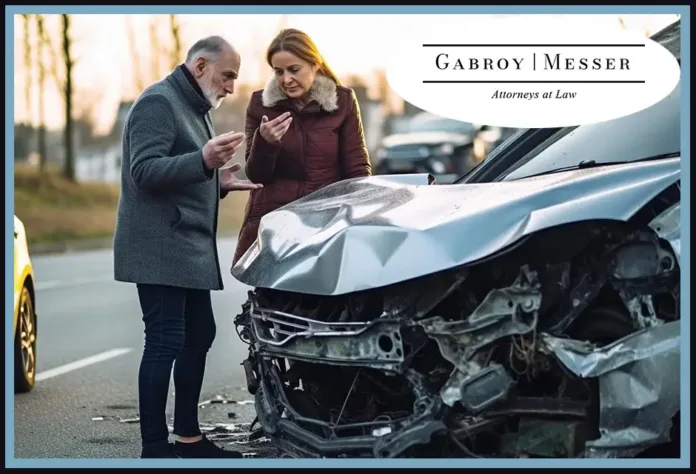Key Takeaways:
- Immediate actions after a car accident can significantly affect your legal and health outcomes.
- Documenting the scene and gathering information are crucial steps.
- Understanding your insurance policy can help you navigate the post-accident process.
Table of Contents:
- Ensure Safety First
- Call Emergency Services
- Document Everything
- Exchange Information
- Seek Medical Attention
- Notify Your Insurance
- Consult an Attorney
Ensure Safety First
Your immediate concern after a car accident should be safety. If possible, move to a safe location—either to the side of the road or a nearby parking area. If your vehicle is still operational, turn on your hazard lights to alert other drivers. Avoid stepping into traffic lanes, as this could lead to further accidents or injuries.
It’s also essential to assess the condition of other passengers in your vehicle. Make sure everyone is okay and check for any visible injuries. If anyone seems disoriented or if you suspect internal injuries, avoid moving them unless staying in the car poses a greater risk. Wait for professional medical help to arrive.
Call Emergency Services
Contact emergency services immediately, regardless of the accident’s severity. Having law enforcement on the scene ensures that an official report is filed, which can be necessary for insurance and legal purposes. This report will contain valuable information such as the time, date, and location of the accident, as well as initial assessments of fault and witness statements.
Additionally, medical personnel can assess injuries, even those that aren’t immediately apparent. Some injuries, like concussions or internal bleeding, may not show symptoms right away but can be life-threatening. Always err on caution and let the professionals assess everyone involved. If legal interpretation is needed, a Vero Beach car accident lawyer can assist in interpreting these official reports.
Document Everything
Thorough documentation can make a significant difference. Capture images of the incident, which should encompass all cars present, any apparent injuries, and the state of the road. Capture different angles and document any traffic signals, road signs, or visible skid marks that could help you understand how the accident occurred.
Detailed documentation may help you during insurance claims and potential legal actions. Make notes of your observations and any statements from other parties involved. Sometimes, even minor details can be crucial when piecing together the events leading up to the accident. Use video recordings to capture the scene and any interactions you have with other parties and witnesses.
Exchange Information
It’s vital to exchange information with the other parties involved. Collect names, contact details, insurance policy numbers, vehicle registration, and driver’s license numbers. Ensure all the information is accurate; incorrect details can delay the claims process.
Additionally, gather contact information from any witnesses. Witness statements are crucial in legal proceedings as they offer an impartial accident report. Write down any responding officers’ badge numbers and contact information, as their reports will be crucial for your case.
Seek Medical Attention
Even if you feel fine, seeking medical attention is prudent. Some injuries aren’t immediately visible or palpable but can still be severe. Adrenaline can mask pain and symptoms, so it’s vital to get checked by a professional. Record all medical appointments and procedures, as these documents will be helpful for your insurance claim and any legal proceedings you may encounter.
A timely visit to a healthcare provider ensures any issues are caught early, preventing complications later. Follow-up appointments may be necessary to monitor your recovery. Specific injuries, such as whiplash and spinal injuries, may not fully appear for days or weeks. Consistent medical evaluations can ensure you’re not overlooking potentially serious conditions.
Notify Your Insurance
Quickly notifying your insurance company is essential. Please provide them with all the documented evidence and information collected at the scene. This includes the police report number, photos, and any medical reports. The sooner you initiate your claim, the quicker you can receive assistance for vehicle repairs or medical expenses.
Having a grasp of your car insurance policy can make dealing with the aftermath of an accident easier, from damage assessment to potential vehicle replacement. Review your policy’s coverage for rental cars, medical expenses, and roadside assistance to avoid surprises during claims. Ask your insurance adjuster for a clear explanation of what your policy covers and your deductibles.
Consult an Attorney
The aftermath of a car accident can be legally complex, making professional guidance indispensable. Consulting a lawyer experienced in car accidents can clarify your rights and responsibilities. They can help you understand the nuances of personal injury law and interpret the fine print in your insurance policy.
This lawyer can also represent you, especially in cases involving insurance claims or possible legal actions. They can discuss with insurance firms to guarantee that you are fairly compensated for any harm or injuries. Moreover, in instances where the fault is disputed, having a legal professional can be vital in gathering evidence and forming a robust case for your defense or claim.
Your attorney can also assist in recognizing any future expenses related to the incident, like continual medical treatment or income loss, and include them in your claim for compensation. This is particularly important in cases where injuries have long-lasting impacts on your quality of life.
